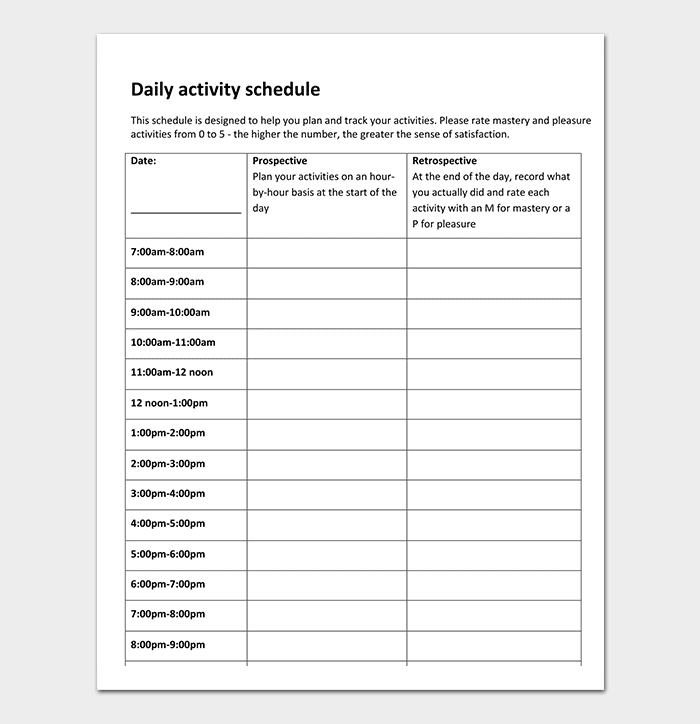24 Hour daily agenda (30 minute blocks)
This was from David Burns Feeling Good and I found it quite useful at various points. Basically:
1 Use a form or make your own spreadsheet with all 24 hours of the day covered but split up even further into 30 or 15 minute blocks. It also has a section to report what you scheduled vs what you ended up doing
2 Brainstorm all the things you need or would like to get done and give a time estimate for each based on how long its taken you ideally in the past
3 Schedule each item based on how much effort/complexity it requires (earlier = more complex/energy-intensive) and make sure the tasks are spaced so that there is enough time and a little buffer for breathing room (based on your durations)
Sorta looks like this, can’t seem to find the original necessarily but you get the point

Very useful and practical tool
Please name the tool/exercise and limit to CBT for this thread (I want to cover and discover others in future topics focused on them). I really want to avoid boilerplate namedropping “this or that therapy but you’d have to pay to see a therapist, you wouldn’t understand”. That just not helpful, please elaborate Any pedantic replies not answering question won’t be entertained


This is my experience with CBT. It was fine in a way, to recognize my feeling, but it never dealt with them. Only when I found a therapist who worked in CBT and acceptance based therapy did I start to improve.
Can you please explicitly share a tool with a name that can be nailed down that helped you specifically, like my example above?
I want to give people concrete examples to latch on to besides the this entire therapy is super helpful. Every name-drop of any almost never generally leads to any tools to try now or sort of paywalls lifechanging techniques behind a therapist which many people can’t afford or access.
Remarking seperately, I do retrospectively find CBT somewhat troubling in the way it assumed feeling bad emotions was always or mostly a result of poor or problem thinking when that sort of strips your feelings and emotions and by extension your lived experience of their validity and relevance when honoring them and learning what they arose to say can be bery helpful and cathartic to respect and experience